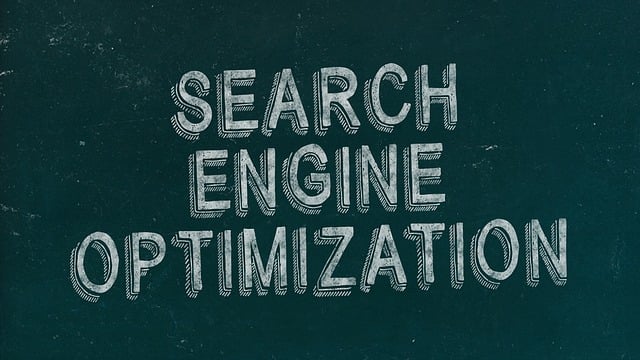In the dynamic digital marketing realm, AI Content Optimization emerges as a transformative force, redefining traditional SEO strategies through data-driven insights. By integrating AI SEO Training, marketers gain a competitive edge by optimizing content for both human readers and search engines using advanced algorithms to analyze vast datasets and understand user behavior. This approach enhances online visibility, drives organic traffic, and keeps pace with evolving search trends, ultimately boosting performance in the digital landscape. Ethical considerations, including dataset diversity, transparency, and privacy respect, are vital as AI becomes a central component in content optimization, ensuring technology augments human experiences without compromising rights and values.
In the dynamic landscape of digital marketing, Artificial Intelligence (AI) has emerged as a game-changer, revolutionizing content optimization and Search Engine Optimization (SEO). This article delves into the transformative power of AI Content Optimization, exploring its potential to elevate online visibility. We dissect the role of AI in refining search engine algorithms, demystify effective AI SEO training methods, and highlight ethical considerations. Real-world applications and future trends further shape this evolving field, underscoring the importance of staying ahead with strategic AI SEO Training.
Understanding AI Content Optimization: A New Paradigm in SEO

In the dynamic landscape of digital marketing, AI Content Optimization emerges as a game-changer, redefining Search Engine Optimization (SEO) strategies. This revolutionary approach leverages advanced artificial intelligence algorithms to enhance content strategy and performance. By integrating AI SEO Training, marketers gain insights into optimizing content for both humans and search engines, ensuring it aligns with the evolving preferences and criteria of these intelligent systems.
AI Content Optimization transcends traditional methods by analyzing vast data sets, understanding user behavior, and identifying patterns to create compelling, relevant, and high-performing content. This new paradigm in SEO not only improves online visibility but also fosters a more engaging user experience. As AI continues to evolve, mastering AI SEO Training becomes essential for staying ahead in the digital competition, ensuring that content remains optimized and relevant in an ever-changing digital world.
The Role of AI in Enhancing Search Engine Visibility

Artificial Intelligence (AI) is transforming the way content is optimized for search engines, making it a crucial aspect of modern-day digital marketing strategies. With AI SEO Training, businesses can harness the power of machine learning algorithms to improve their online visibility significantly. These advanced systems can analyze vast amounts of data in seconds, understanding user intent and identifying patterns that traditional methods might miss.
By leveraging AI, content creators can optimize meta tags, headings, and even craft tailored titles and descriptions that resonate with search engine algorithms. This ensures that web pages rank higher on search results pages (SERPs), attracting more organic traffic. Moreover, AI can continuously learn from user behavior, allowing for dynamic adjustments to content strategies, ultimately enhancing the overall search engine visibility of a website or online platform.
Key Components of Effective AI SEO Training

The success of AI Content Optimization heavily relies on robust AI SEO Training. Key components include comprehensive data labeling, where annotators meticulously tag relevant keywords and entities within content, fostering accurate understanding by AI models. This is followed by careful model selection and training, involving sophisticated algorithms that learn to rank content based on user intent and search engine guidelines.
Additionally, ongoing performance monitoring and fine-tuning are vital. By regularly evaluating the effectiveness of AI-generated optimizations through analytics and user feedback, we can ensure continuous improvement. This iterative process allows for adapting to evolving search trends and user preferences, ultimately maximizing the impact of AI SEO Training on content visibility and rankings.
Integrating AI Tools for Content Creation and Analysis

In today’s digital era, integrating AI tools for content creation and analysis has become a game-changer in the world of AI SEO training. These advanced technologies are revolutionizing how we optimize content, enabling professionals to enhance their strategies significantly. AI algorithms can generate high-quality, unique text, saving time and resources while ensuring diverse, engaging content that captures audiences’ attention.
Moreover, AI analysis tools provide valuable insights into user behavior and preferences, helping content creators tailor their material to specific audiences. By leveraging machine learning capabilities, these tools identify trends, keywords, and topics that drive engagement, enabling data-driven decision-making. This strategic approach not only improves search engine rankings but also fosters a deeper connection with the target market, ultimately enhancing overall online presence and performance.
Ethical Considerations in AI-Driven Content Optimization

As AI takes center stage in content optimization, it’s crucial to address ethical considerations that come with this powerful technology. The algorithms designed to enhance and personalize user experiences must be developed and implemented responsibly. Bias, privacy, and transparency are key aspects to focus on. AI models trained on diverse datasets can mitigate bias, ensuring fair and unbiased content recommendations. However, the opacity of some AI processes raises concerns about accountability and user trust.
AI SEO training plays a vital role in educating developers and content creators about these ethical guidelines. It encourages the development of inclusive and transparent AI systems that respect user privacy. By integrating ethical practices into AI content optimization, we can create a more responsible digital landscape, where technology enhances human experiences without compromising fundamental rights and values.
Real-World Applications and Case Studies

AI Content Optimization has transformed various industries, demonstrating its real-world applications and potential. From personalized marketing campaigns to enhanced customer service through chatbots, AI is revolutionizing how businesses engage with their audiences. For instance, e-commerce platforms use AI algorithms to offer tailored product recommendations, significantly boosting sales and customer satisfaction.
Case studies highlight successful implementations. A leading online retailer improved conversion rates by 30% after integrating an AI-powered content optimization tool that analyzed user behavior and adjusted website content accordingly. Similarly, a media company increased its organic traffic by 25% through AI SEO training, enabling them to create more engaging and search engine-friendly articles. These examples underscore the tangible benefits of leveraging AI in content creation and strategy, making it an indispensable tool for modern marketers and businesses aiming to stay ahead in the digital landscape.
Future Trends: Shaping AI SEO Practices

The future of AI content optimization is promising, with trends shaping AI SEO practices in significant ways. As natural language processing (NLP) continues to advance, AI algorithms will become increasingly adept at understanding and interpreting human language nuances. This evolution promises to enhance search engine capabilities, enabling them to deliver more precise and contextually relevant results to users. With the rise of voice search and virtual assistants, optimizing content for semantic search is set to be a key focus.
AI SEO Training will play a pivotal role in preparing professionals for these changes. Staying ahead of the curve by acquiring skills in AI-driven content optimization techniques, such as machine learning algorithms for text generation and ranking prediction, will empower marketers and content creators. By embracing these trends, they can ensure their content remains competitive and relevant in a rapidly transforming digital landscape.
